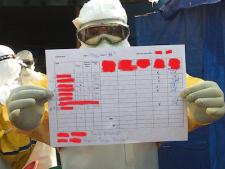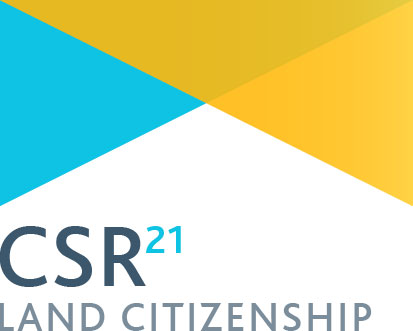
Link: Ebola Digest
As 2015 rumbles on and the epidemic abates, we'll continue to run these regularly for the time being - the link to the most recent edition of the regular Ebola Digest.
There's a huge amount of info in this excellent resource and we suggest you check out the source. In the meantime we've reproduced some of their news digest below, in the hope it may be of particular interest and use to our readers. Today's article image: "French scientists presented the results from an Ebola drug trial at a press conference on Monday, they did so with plenty of caveats, but their message was hopeful: The drug, favipiravir, appeared to lower mortality in people with low and medium-high levels of virus in their blood, the researchers told journalists at the Conference on Retroviruses and Opportunistic Infections (CROI) here. The Ebola treatment center in Nzérékoré, Guinea, one of the trial sites."
That link again: https://eboladigest.blogspot.co.uk/2015/02/ebola-digest-fri-22715.html
Ebola Situation Report - 25 February 2015
A total of 99 new confirmed cases of Ebola virus disease (EVD) were reported in the week to 22 February. Guinea reported 35 new confirmed cases. Cases continue to arise from unknown chains of transmission. Transmission remains widespread in Sierra Leone, with 63 new confirmed cases. A spike of 20 new confirmed cases in Bombali is linked to the previously reported cluster of cases in the Aberdeen fishing community of the capital, Freetown. There were 14 new confirmed cases in Freetown over the same period, with cases still arising from unknown chains of transmission in Freetown and elsewhere. Transmission continues at very low levels in Liberia, with 1 new confirmed case reported in the 7 days to 22 February: a registered contact associated with a known chain of transmission in the capital, Monrovia.
Amid uptick in Ebola cases, UN agency cites challenges in reaching affected communities
UN--New cases of Ebola rose again in Guinea and transmission remains widespread in Sierra Leone, the United Nations World Health Organization (WHO) reported as it and the UN Ebola response mission both raised concerns about challenges in engaging communities to win the fight against the disease. Both WHO and UN Mission for Ebola Emergency Response (UNMEER) also noted unsafe burials of those who died from the disease posed as a challenge and that "a significant number" of individuals are still either unable or reluctant to seek treatment for Ebola, which has affected over 23,500 people and killed more than 9,500 mainly in the Guinea, Liberia and Sierra Leone.
99 Ebola cases in past week, nearly two-thirds in Sierra Leone - WHO
Reuters--Guinea, Liberia and Sierra Leone reported 99 new confirmed Ebola cases in the week to Feb. 22, down from 128 the previous week, the World Health Organization (WHO) said on Wednesday. Sierra Leone accounted for the bulk of the latest infections with 63, signalling a halt to a steep decline recorded from December through January, followed by Guinea with 35 and Liberia just a single case, the U.N. agency said in its weekly report.
NYT--Months of declining cases have fed hopes that the Ebola outbreak might finally be ending. "There are now 10 times fewer people diagnosed with Ebola each week than there were in September last year,"said Dr. David Nabarro, the United Nation's special envoy on the Ebola crisis. The number of new Ebola cases fell rapidly in December and January, but officials with the United Nations and the World Health Organization cautioned that ending the outbreak entirely would be extremely difficult. "The outbreak still presents a grave threat," Dr. Nabarro said. "We have to really work hard to get to what we call zero-zero — zero cases, zero transmissions."
Researchers identify antibodies to fight Marburg virus
Medical News Today--Antibodies have been found to bind to the surface of the virus, which could lead to future antibody treatments and vaccines to target Marburg and other viruses in the family. Marburg virus is up to 90% lethal. Just like the Ebola virus, it can cause hemorrhaging and organ failure. An outbreak of the virus in Angola in 2005 was responsible for the deaths of 329 people, and the worry is that an even bigger outbreak could occur in the future.
Thoughts turn to recovery as Ebola slowly ebbs in West Africa
In the marble atrium of the Mammy Yoko hotel in Freetown, manager Nuno Neves has spotted something he has not seen since the Ebola virus struck Sierra Leone nine months ago: foreign businessmen. The Radisson Blu chain opened the four-star hotel in April to cater for investors in one of Africa's fastest-growing economies. A month later, Ebola crossed the border from Guinea and those investors fled.
Fatality Rate in West Africa Ebola Clinics Is Dropping
NYT--As the Ebola epidemic in West Africa wanes, physicians from Doctors Without Borders are confronting a mystery: More of their patients are surviving. They do not know why.
"The reasons are really unclear," said Dr. Gilles van Cutsem, who helped run the agency's response in Liberia and gave a presentation describing its experience at an AIDS conference here. Doctors Without Borders, better known by its French name, Médecins Sans Frontières — has cared for more Ebola patients in West Africa than any other organization. At its peak, it was running 22 centers; it now runs eight.
Ebola: how to prevent a lethal legacy for food security
Guardian--The Ebola outbreak did what outbreaks do: affected movement. People were afraid of the virus and governments made concerted efforts to contain Ebola's spread. In doing so, food-producing parts of the countries found themselves isolated from urban cash economies. Traders willing to maintain trading routes, or with sufficient stock, often hiked prices to capitalise on the increase in demand as people panic-bought. Stocks decreased, prices rose and the purchasing power of people decreased as income-generating activities were affected by the outbreak.
INTERNATIONAL RESPONSE
U.S. Added Speed, Scale to West Africa Ebola Fight
Since Sept. 2014, when U.S. Army Africa leadership arrived in Liberia to help contain the historic outbreak of Ebola virus disease in West Africa, the United States is transitioning its contributions to civilian and nongovernmental organizations there as the World Health Organization reports a drop in confirmed cases. Last month, Pentagon Press Secretary Navy Rear Adm. John Kirby described how the whole-of-government approach led by the U.S. Agency for International Development, or USAID, and the Defense Department had mobilized and adapted its resources in an austere environment while supporting a critical mission.
Report Slams U.S. Ebola Response and Readiness
The United States fumbled its response to the Ebola epidemic before it even began, neglecting experiments to make vaccines and drugs against the virus, and cutting funding to key public health agencies, a presidential commission said Thursday. Americans focused on their own almost nonexistent risk of catching Ebola from travelers instead of pressing to help the truly affected nations, the scathing report from the Presidential Commission for the Study of Bioethical Issues says.
U.S. military ends Ebola mission in Liberia
The United States military officially ended a mission to build treatment facilities to combat an Ebola outbreak in Liberia on Thursday, months earlier than expected, in the latest indication that a year-long epidemic in West Africa is waning. Washington launched the mission five months ago and the force peaked at over 2,800 troops at a time when Liberia was at the epicenter of the worst Ebola epidemic on record.





